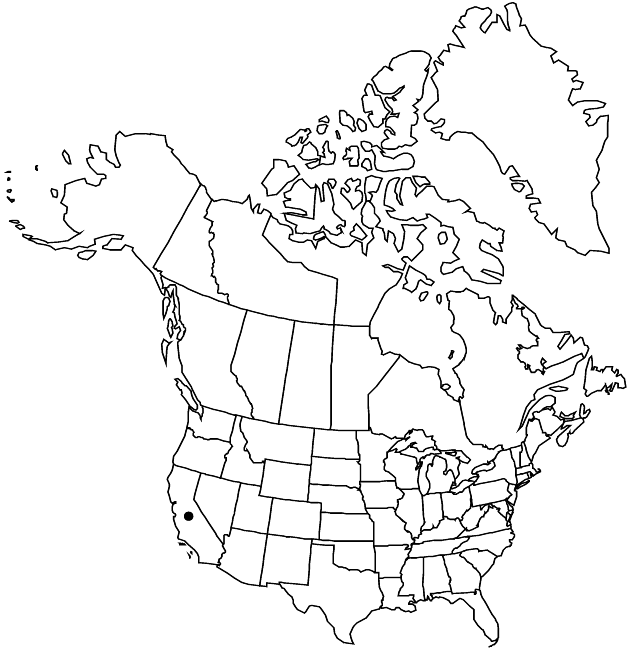Difference between revisions of "Cirsium fontinale var. campylon"
Phytologia 73: 313. 1992.
Common names: Mt. Hamilton thistle
EndemicConservation concern
Basionym: Cirsium campylon H. Sharsmith Madroño 5: 85, fig. 1. 1939
imported>Volume Importer |
imported>Volume Importer |
||
| Line 61: | Line 61: | ||
|publication year=1992 | |publication year=1992 | ||
|special status=Endemic;Conservation concern | |special status=Endemic;Conservation concern | ||
| − | |source xml=https:// | + | |source xml=https://bitbucket.org/aafc-mbb/fna-data-curation/src/2e0870ddd59836b60bcf96646a41e87ea5a5943a/coarse_grained_fna_xml/V19-20-21/V19_164.xml |
|tribe=Asteraceae tribe Cardueae | |tribe=Asteraceae tribe Cardueae | ||
|genus=Cirsium | |genus=Cirsium | ||
Latest revision as of 19:48, 5 November 2020
Basal leaves: longer spines 4–15 mm, distal faces equally glandular and tomentose. Cauline leaves: longer spines 10–18 mm. Distalmost stem bracts typically separated from heads. Phyllaries 65–85, 25–35 of them reflexed; apical spines 3–6 mm; marginal spines usually absent. Cypselae 3.4–4.1 mm. 2n = 34.
Phenology: Flowering spring–summer (Apr–Aug).
Habitat: Serpentine seeps in areas of chaparral, valley grasslands, foothill woodlands
Elevation: 300–800 m
Discussion
Of conservation concern.
Variety campylon is endemic to the Mt. Hamilton Range in Alameda, Santa Clara, and Stanislaus counties.
Selected References
None.
Lower Taxa
None.
